The multi-faceted Living Danube Delta education campaign is bringing young people from three countries closer to the nature of the delta, and educating them about the importance and benefits of rewilding.
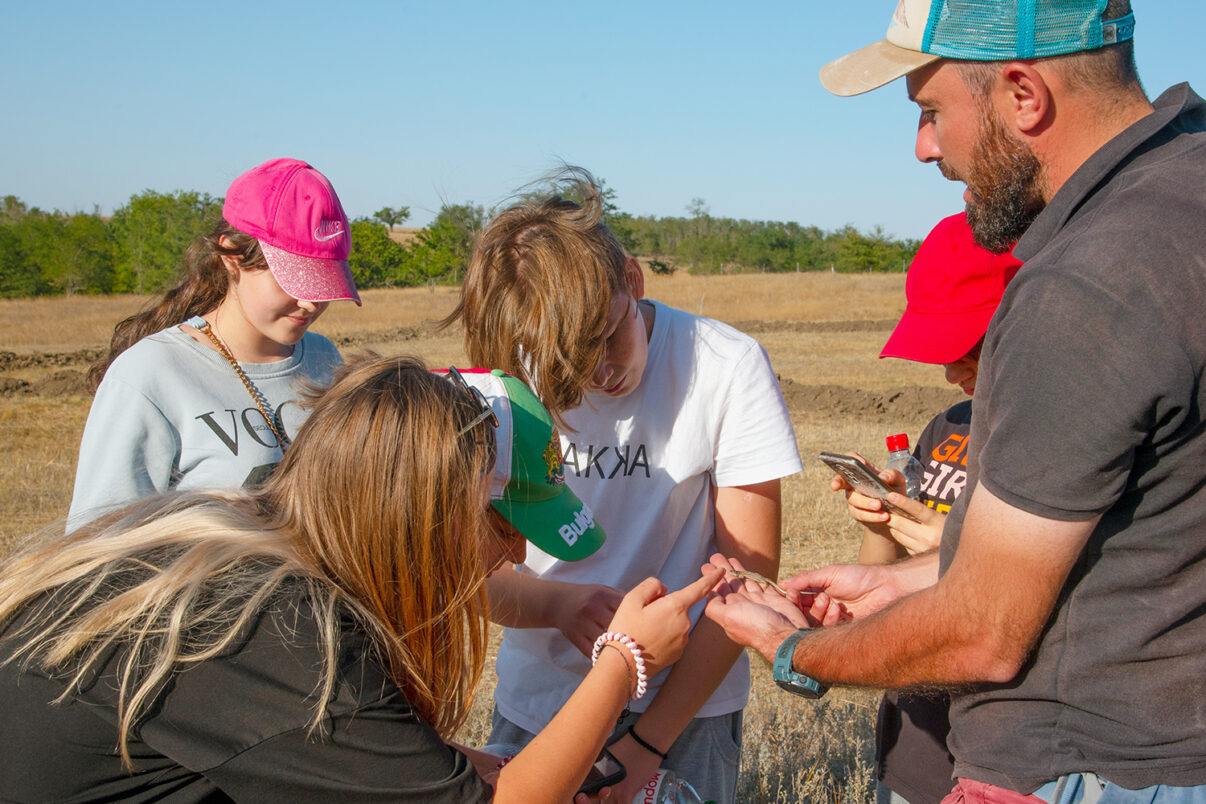
Inspiring generation rewilding
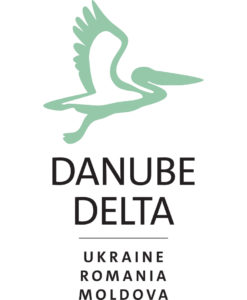 Inspiring and enabling young people to join the burgeoning rewilding movement is critical for the future health of the planet. Connecting children with nature is not only beneficial for their health and development, but can help to create a generation of eco-conscious individuals who value and understand the importance of preserving and restoring natural habitats, and who want to engage in nature recovery. Building engagement with people of all ages is a central component of all rewilding efforts.
Inspiring and enabling young people to join the burgeoning rewilding movement is critical for the future health of the planet. Connecting children with nature is not only beneficial for their health and development, but can help to create a generation of eco-conscious individuals who value and understand the importance of preserving and restoring natural habitats, and who want to engage in nature recovery. Building engagement with people of all ages is a central component of all rewilding efforts.
With the aim of immersing children in nature and educating them about the benefits of rewilding, an interactive education campaign entitled “Living Danube Delta” kicked off in May this year, overseen by the Rewilding Ukraine team. It involves elementary and middle schools in Ukraine, Romania and Moldova, which are all located in and around the Danube Delta rewilding landscape.
“Through this campaign we not only want to educate children in the classroom, but also to get them out into nature,” explains Rewilding Ukraine Communications Officer Kateryna Kurakina. “A range of hands-on field activities will give the children an appreciation of why we need to preserve and restore nature, and why rewilding is the best way to deliver that restoration. In terms of building engagement, there’s no substitute for seeing the wonderful wildlife of the delta up close.”
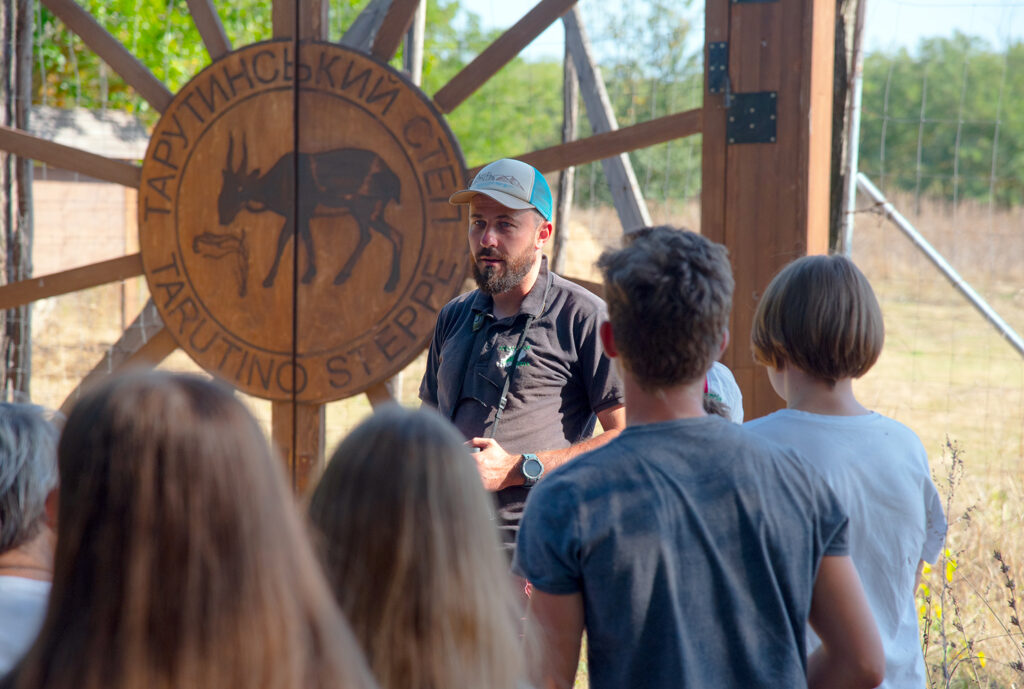
A diverse programme
The multi-stage campaign programme comprises online seminars for teachers, as well as extracurricular classes in schools, visits to the Danube Delta rewilding landscape, a contest, a club, and a camp in the landscape.
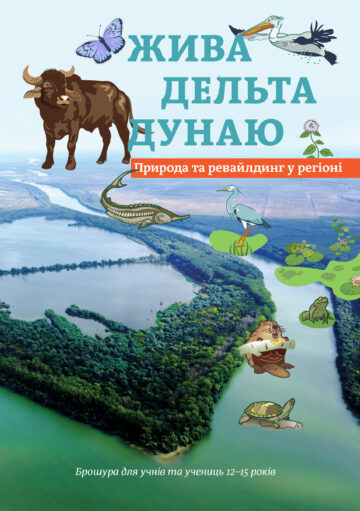
The campaign kicked off with seminars for the schoolteachers taking part. An online workshop was held in Romanian and Ukrainian to explain the goal and activities of the programme, present materials for the extracurricular classes, answer questions, and clarify organisational issues. This has now been followed up by extracurricular lessons in secondary schools, which involve educational exercises and creative games using printed materials such as posters by rewilding artist Jeroen Helmer, stickers and diplomas, which have been distributed by the Rewilding Ukraine team. The lessons encompass a range of topics, such as natural processes, the biodiversity of the Danube Delta, the development of the local nature-based economy, and the Dalmatian pelican as a keystone species of the delta. They will conclude with an excursion to the rewilding landscape – together with teachers, a photographer, and members of the local rewilding team – where the children will learn about rewilding and natural processes, and how to take photos.
“The trip we took to the Tarutino Steppe in September was really interesting,” said a group of students from Vylkove School in the Ukrainian part of the Danube Delta rewilding landscape, after their excursion. “It was so exciting to see kulan grazing peacefully in the distance, and fallow deer jumping out of the forest towards us. We also managed to get some great photos of lizards.”
At the end of October, a competition will be held between all the secondary schools participating in the campaign, with each class proposing and presenting a local rewilding project. The winning class will receive a prize, such as a boat trip to see Dalmatian pelicans.
The elementary school section of the campaign will also kick off in October, involving various classes and activities.
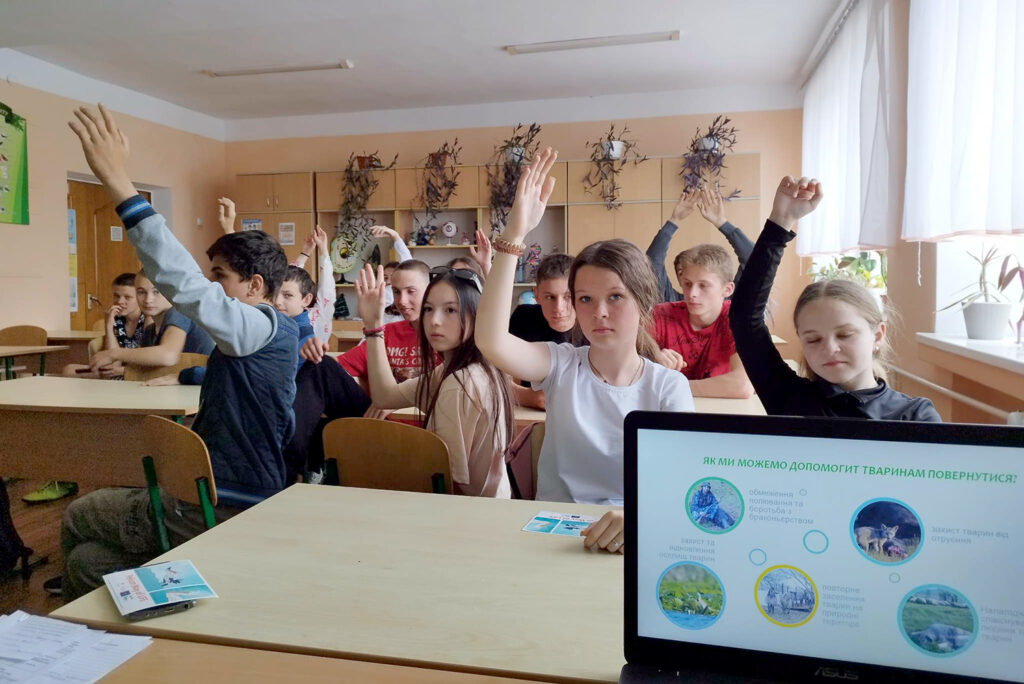
Long-term focus
Alongside the extracurricular classes, the campaign has also seen a Danube Delta Rewilders Club launched, in partnership with the Danube Biosphere Reserve. This brings together children from all three countries who want to dive deeper into conservation and rewilding. A dedicated Instagram account has been created, for both middle and elementary school students, including a #RewildersDD hashtag and digital content.
The club will serve as a platform for the children to share their passion for the nature of the Danube Delta, communicate with the like-minded pupils from other countries, and carry out activities. From time to time groups of children from the club will accompany rewilding teams on fieldwork trips to carry out practical rewilding. It will be supported for up to two years as part of the campaign, and will then become an independent community.
In the spring or summer of next year a Danube Delta Rewilders Club camp will be organised, offering the most active club participants the opportunity to go on an expedition with the rewilding team. A select group of teachers will also take part, giving them the necessary skills and experience to organise similar activities in the future.
“The nature of the Danube Delta is gradually growing wilder through rewilding efforts,” says Kateryna Kurakina. “At the same time, we would love to see a community of young people passionate about that nature growing too.”
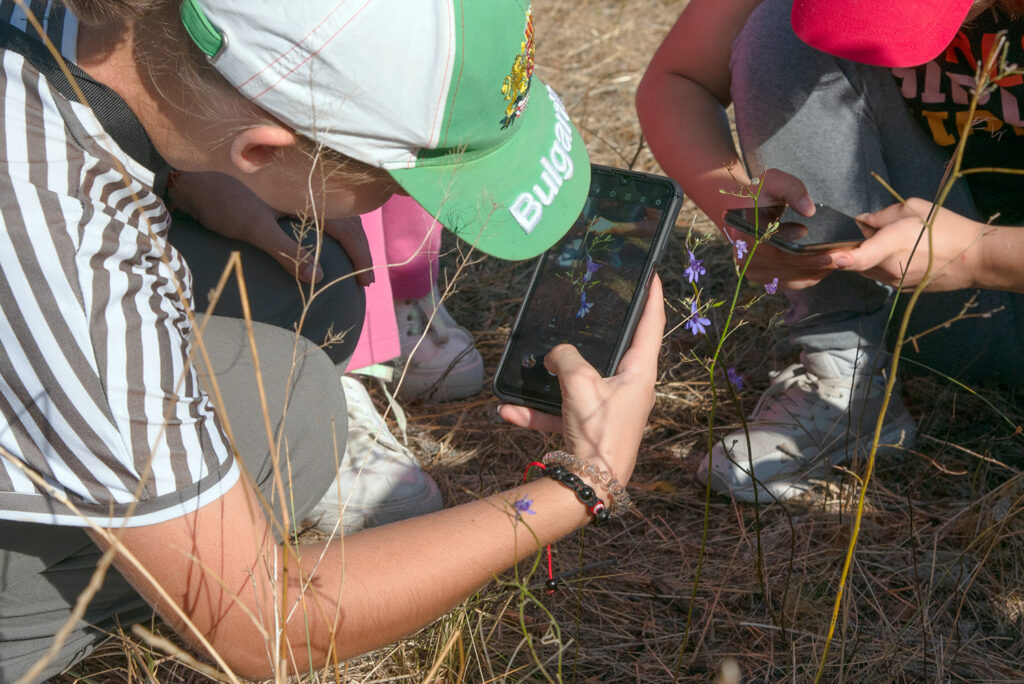
Scaling up rewilding
The Living Danube Delta education campaign is part of scaled-up rewilding efforts in the Danube Delta rewilding area, which began at the start of 2019 with funding provided by the Endangered Landscapes & Seascapes Programme. It also focuses on the Dalmatian pelican as a keystone species of the Danube Delta, as part of the “Pelican Way of LIFE” initiative, which is co-financed by the LIFE Programme of the European Union.
